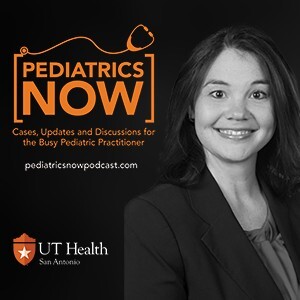
Saturday Mar 02, 2024
Treatment-Related Toxicity and Pediatric Cancer In Hispanic Children
A Focused Look at Cancer in Hispanic Children
link for free credit:
https://cmetracker.net/UTHSCSA/Publisher?page=pubOpen#/getCertificate/10095733
From the Conference: Advancing the Science of Cancer in Latinos Feb. 21-23, 2024
In this podcast episode, Host Holly Wayment from UT Health San Antonio's Department of Pediatrics delves into the critical disparity in healthcare for Hispanic children, particularly in cancer diagnosis and treatment. Recorded at the enlightening conference 'Advancing the Science of Cancer in Latinos' in San Antonio, Texas, this insightful discussion presents hard-hitting research and findings in this crucial area.
This episode sheds light on the troubling survival differences among children and young adults diagnosed with cancer, revealing how the five-year survival rate among Hispanic patients lags compared to their non-Hispanic peers. It emphasizes the high prevalence of cancers like Acute Lymphoblastic Leukemia (ALL) and testicular cancer in Hispanic communities, exploring interconnected factors such as ethnicity, geographic origin, and genetic predispositions in tackling this complex issue.
The episode brings us a conference talk by Dr. Allison Grimes, where she delves into the harsh realities of treatment-related toxicities in pediatric cancer, uncovering their root causes, immediate impacts and lasting effects. Highlighting the urgent need for systematic and accurate capture of both short-term and late-term therapy toxicities, the discussion also scrutinizes the preferences for devising treatment plans for improved survival rates.
Focusing on the toxicity effects among pediatric patients, Wayment breaks down the data demonstrating how organ toxicity varies based on age, primary cancer types, and ethnicity. She brings attention to the higher rates of advanced-grade toxicities in Hispanic children and delves into determinants such as pubertal status, socioeconomic status, and specific conditions like Ewing sarcoma and acute lymphoblastic leukemia (ALL).
The episode also outlines various strategies to reduce toxicity, advocating for a more individualized approach to survivorship care services. Emphasizing the need for supportive care interventions that target treatment toxicities, it unveils a path forward for treating Hispanic children with cancer. The episode winds up with a Q&A segment highlighting the importance of involving survivors in designing survivorship care services, to give a more personalized approach to care.
No comments yet. Be the first to say something!